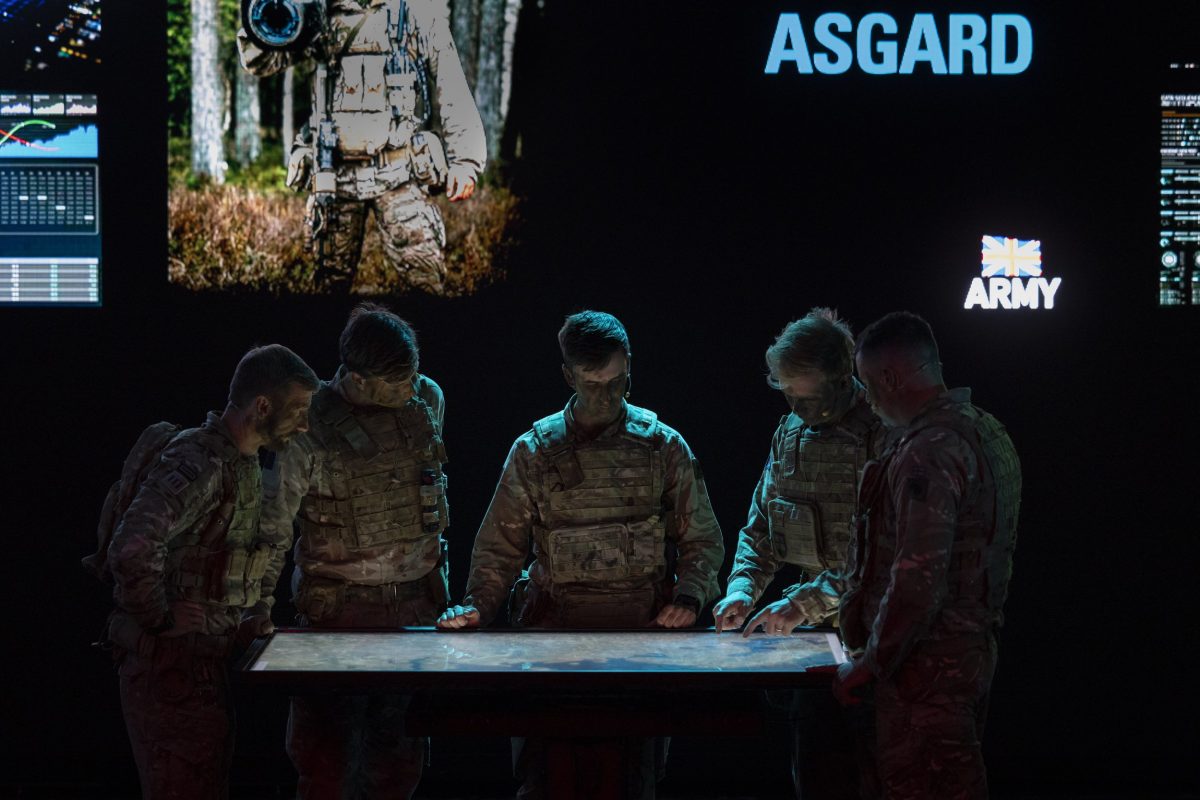The British Army’s New AI-Driven Battlefield System
The British Army is set to revolutionize its approach to warfare by integrating artificial intelligence (AI) into its operations. According to recent disclosures, the Ministry of Defence plans to deploy an advanced system called Asgard within two years, which will be capable of detecting and striking enemy targets on the battlefield. This development could eventually lead to a future where military operations are conducted without human oversight.
Asgard, a £1 billion project, relies on a network of sensors that can detect enemy threats or incoming attacks. Once identified, AI algorithms analyze the data and recommend potential courses of action. Traditionally, this process involved manual input from soldiers, which could take several hours. With the new system, information will be gathered and presented to officers in minutes or even seconds, significantly improving response times.
The project is expected to be fully operational by 2027, as the head of the Army has warned that the UK must be prepared to either fight or deter a potential war against Russia, possibly with support from China, Iran, and North Korea. Currently, the system includes a “human in the loop” to distinguish between friendly and enemy assets and make final decisions on strikes. However, officials have not ruled out the possibility of allowing AI to operate independently if ethical and legal considerations evolve.
Asgard will be deployed during conflicts or military exercises. Some components of the system will be shared with allies to enhance cooperation, while others will be sold internationally to boost the UK’s economic growth. The Army is also drawing lessons from the ongoing conflict in Ukraine, where AI and software are already being used to speed up the identification and targeting of Russian forces.
Civilian Involvement in Modern Warfare
One of the 27 firms contributing to Asgard is SensusQ, a British-Estonian company co-founded by Villiko Nurmoja, a serving Estonian reservist. Estonia, with its 183-mile border with Russia and a history of Soviet occupation, has experienced firsthand the threat posed by Vladimir Putin. It is also home to the largest contingent of British troops deployed anywhere in the world.
Nurmoja’s firm has developed an app that allows civilians and military personnel to report suspicious objects. The app can be used in peacetime for reporting crimes, but in a military context, it enables users to identify enemy aircraft, drones, tanks, or convoys. Nurmoja describes the app as a modern version of civilian reporting during World War II.
He emphasizes the importance of having a single, integrated system to streamline intelligence gathering, which can save significant amounts of time and effort. “The amount of human hours you spend on putting intelligence together even on a lower tactical level is enormous,” he said.
Smartphones as Tools for Defense
Another company involved in the Asgard project is Mind Foundry, which uses smartphone microphones to detect and warn of drone attacks. These attacks account for around 70% of casualties in Ukraine. The firm specializes in using acoustic signals to detect threats, having previously used smartphone microphones to predict whether mosquitoes were carrying malaria based on factors like wingspan and location.
The new system, available as an app, gives soldiers crucial seconds to prepare for incoming drone attacks and helps gather intelligence on enemy drone operations. Al Bowman, former director of the Army’s intelligence centre and now general manager of Mind Foundry, explained how the app works: “Every soldier will be carrying something called an attack device, which is like a mobile phone sitting on their chest giving them streams of information.”
The app monitors the sound of drone wings to identify the type of drone, direction of travel, and proximity up to 50 meters away. This capability allows soldiers to understand the nature of the threat and respond accordingly.
AI Enhances Battlefield Efficiency
Many contractors involved in Project Asgard use AI to improve efficiency and reduce response times. Shefali Sharma, director of Oxford Dynamics, described her AI-driven system, which collates and organizes information to recommend different courses of action. This system can complete a process that would typically take an analyst eight hours in just 23 seconds.
Sharma emphasized that while AI can greatly enhance decision-making, it does not replace the need for human oversight. “We don’t believe that these systems should be allowed to make decisions autonomously. However, [this] allows humans to focus on tasks that are most pertinent to our human skill set, rather than finding that needle in the haystack.”
By leveraging AI, soldiers can focus on strategic decisions, ultimately leading to faster and more effective actions on the battlefield. This approach not only improves operational tempo but also has the potential to save lives.






